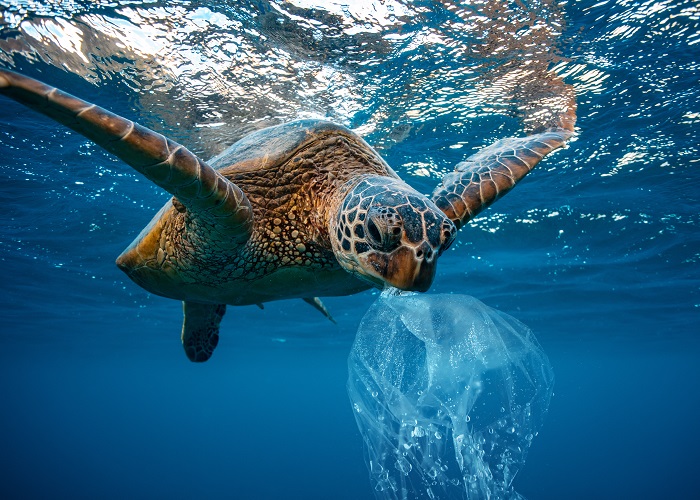The marine ecosystem is an integral part of our environment. It houses wildlife, regulates our climate, and produces over 50% of the world’s oxygen by storing carbon dioxide (“Why Should We Care About The Ocean,” n.d.). When our ocean is polluted, it could can cause a broad array of issues which can affect not only sea life, but also those living on land. Pollutants of marine ecosystems often emanate from oil spills, discharges, land run-off and wind-blown debri. In fact, according to the United Nations, 80% of marine litter is plastic (2017). So why is there so much plastic in our sea, and what is the impact of marine litter?
Plastic In Our Ocean
Independent.co.uk estimated the rate at which plastic waste will increase in the ocean before 2020. It was reported that approximately 8 million tons of plastic debri, such as food packaging and plastic bottles, are being washed into the oceans each year (Ritschel, 2018). The ever-increasing rate of plastic production and poor management practices forms another major reason why plastic litter is dominating the sea.
Plastic in our oceans affects creatures large and small. From seabirds, whales, and dolphins, to tiny seahorses that live in coral reefs. Plastic litter found floating on the ocean surface, or stranded on the beach, can entangle fish, seabirds, turtles, and other marine life. It can even cause suffocation, drowning, and starvation. The later, starvation, often arises from consuming plastic. When animals do so, they believe that they’re full, however; lack of proper nutrients causes them to starve.

Sea turtles often mistake plastic bags for jellyfish.
How You Can Help
The accumulation of plastics in the marine ecosystem is never anyone’s friend. You can reduce the adverse effects of marine litter by limiting your use of plastic, participating in beach clean-up events, or joining programs like California Adopt A Beach.
Start taking action now to help the ocean become safer and healthier for all.
References
NOAA. (2018). Why Should We Care About The Ocean. National Oceanic And Atmospheric Administration. https://oceanservice.noaa.gov/facts/why-care-about-ocean.html
Ritschel, C. (2018). Why Is Plastic Bad For The Environment And How Much Is In The Ocean. INDEPENDENT. https://www.independent.co.uk/life-style/plastic-bad-environment-why-ocean-pollution-how-much-single-use-facts-recycling-a8309311.html
